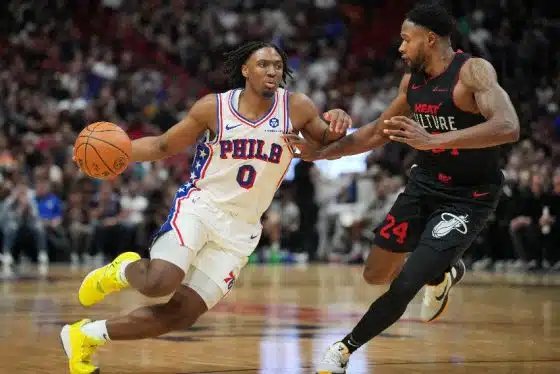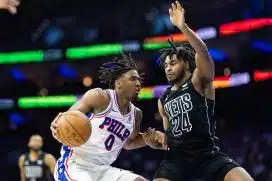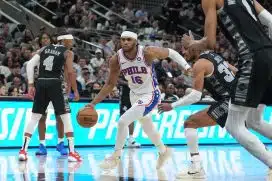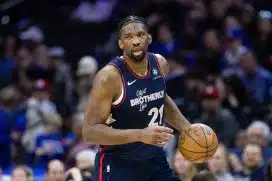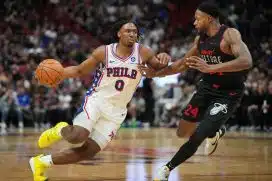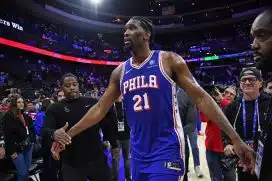By Josh Liddick, Sports Talk Philly editor
Perhaps one of the greatest legends in Philly Sports and one of the most recognizable athletes, Julius "Dr. J" Erving is synonymous with the Philadelphia 76ers.
He's just one of those guys you always think of when you think of great Sixers players.
But most people don't really know how Erving became a Sixer in the first place.
On October 20, 1976, the @sixers acquired @JuliusErving from the New York Nets.
Dr. J would lead Philly to four finals and a championship pic.twitter.com/Cgt0ZEsaVw
— Sixers History (@SixersHistory) October 20, 2017
Prior to 1976, the Nets were basically on top of the world in the American Basketball Association (ABA), with Erving and the Nets winning the ABA Championship in 1976.
But then the ABA started to falter and they decided to have a merger with the NBA.
The Nets had planned on picking right up where they left off when they joined the NBA, but the Knicks, also in New York, demanded the Nets pay them $4.8 million for "invading" the Knicks' NBA territory.
On this date, October 20, in 1976, the Sixers acquired Erving, in a move that went against the New York Nets' initial wishes.
The Nets moved over to the NBA from the ABA for the 1976 season, and because of costs from joining the NBA, Nets owner Roy Boe didn't exactly live up to his promise to raising Erving's salary.
Erving held out of playing and waited for a new contract to continue playing for the Nets.
However, the Nets instead looked for a team to take Erving off their hands in a trade, and they offered the Knicks Erving in exchange for the $4.8 million to be waived.
But the Knicks declined.
And the Sixers came onto the scene, offering to buy Erving's contract outright for $3 million, and the Nets accepted.
The contract ended up totaling $6 million, with the other half going to Julius Erving.
Here's a little fact that is interesting about this, according to Wikipedia.
This would total $6 million overall, with the other half going to Erving. His new jersey number 6 would derive from the $6 million paid by the Philadelphia 76ers; it also matched the team nickname "Sixers."
The rest is history, Dr. J would go on to lead the Sixers to four NBA Finals appearances and an NBA championship in 1983, the Sixers last championship to this day.

